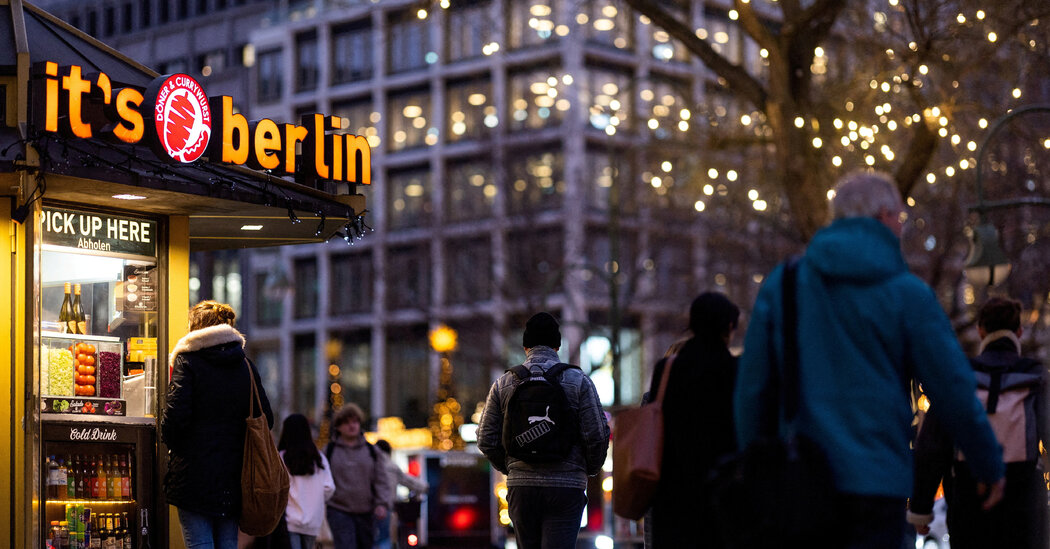The economy shrank last year and is not predicted to grow much in 2024. Farmers are angry, industrial output is falling and the government is bickering.
Germany started the year with Berlin’s streets choked with tractors and farmers blaring horns in furious protest of proposed budget cuts. Then train engineers walked off the job to demand better pay, stranding commuters and carloads of freight and leaving the country angry and gridlocked.
The same could be said for the state of the German economy. Last year it contracted 0.3 percent, official figures showed this week, making it not only the largest economy but also the slowest growing among the 20 countries using the euro. Industrial production has fallen five months in a row.
“The economy is at a standstill in Germany,” said Siegfried Russwurm, the president of the Federation of German Industries. “We don’t see any chance of a rapid recovery in 2024.”
Since it was rebuilt after World War II, Germany has been Europe’s main driver of economic growth, becoming an industrial powerhouse known for vast factories and fine-tuned engineering.
But now its automakers must compete with relatively cheap electric cars from China, and it vies with the United States to attract tech giants. There is a growing realization that Germany has not been successful updating its industry with sufficient flexibility and digital know-how to remain competitive.



This is the best summary I could come up with:
Germany grew rich in recent decades by selling its goods to the world, racking up a trade surplus that strained ties with the United States under President Donald J. Trump.
But that would mean changing the Constitution, which requires a two-thirds majority in Parliament, implying a level of cooperation between the opposition and the government that is unthinkable in the current political environment.
Economists have warned that taking a red pen to spending instead of raising taxes — a move vehemently opposed by the fiscally libertarian Free Democrats, the smallest party in Mr. Scholz’s coalition but the one that controls the finance ministry — will be a further drag on the economy.
That, coupled with an increase in wages won after labor actions like the train engineers’ strike, could encourage German consumers to spend more, albeit at the risk of fanning further inflation.
He pointed to the country’s growing green tech sector as a bright spot in the economy, those industries that develop technology for environmental protection, renewable energies and the efficient use of resources.
Intel and Taiwan Semiconductor Manufacturing Company plan to build factories in eastern Germany, helped by subsidies worth €20 billion, which have survived government budget cuts.
The original article contains 1,206 words, the summary contains 200 words. Saved 83%. I’m a bot and I’m open source!